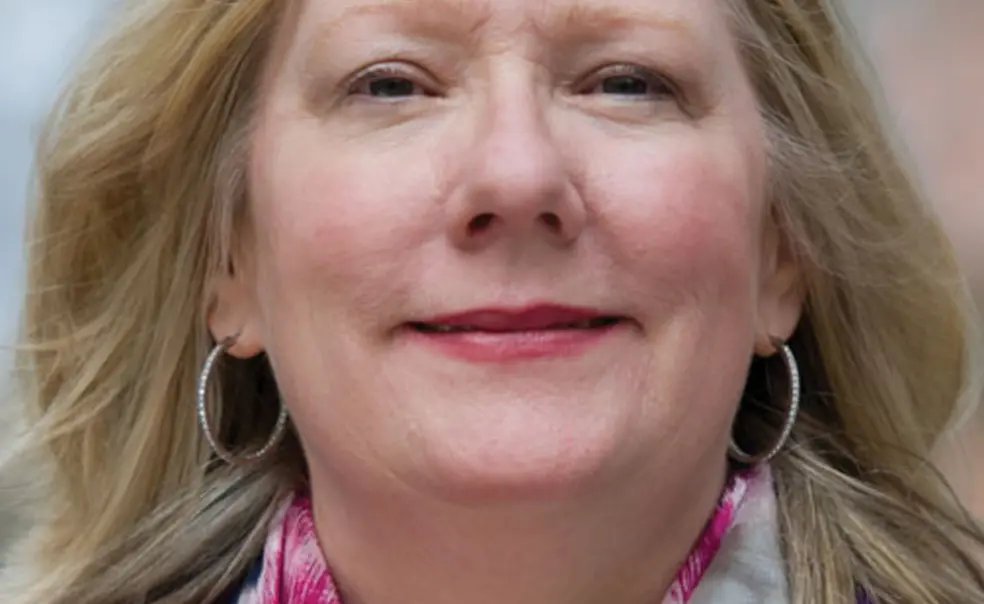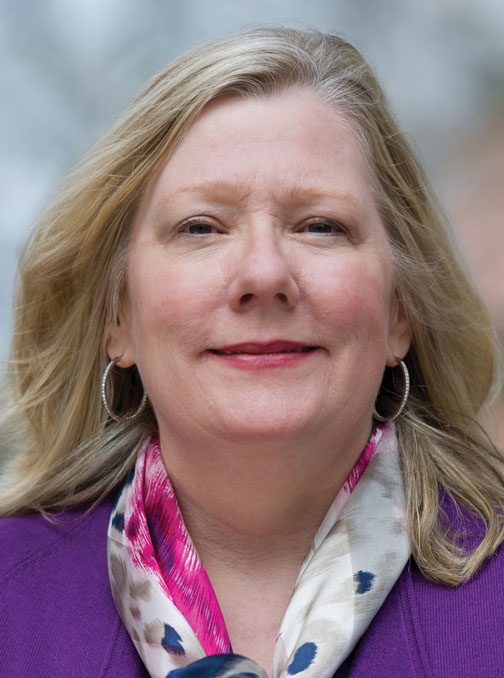M. Cathleen Kaveny ’84, on Catholicism today
After graduating from Princeton, M. Cathleen Kaveny ’84 earned a law degree and a Ph.D. in ethics. She now teaches both law and theology at the University of Notre Dame, where she is a respected voice on questions of morality and law. Kaveny also is a columnist for Commonweal magazine and a former member of the Catholic Common Ground Initiative, which seeks to bring together groups within the Catholic Church for conversation. This spring Kaveny returned to Princeton’s religion department, where she is teaching an introductory course on Catholic moral theology and a graduate seminar on law and religion.
What are your impressions of Pope Francis?
I’ve been both impressed and, on a personal level, touched by the way he’s behaved in both liturgical settings and in relationships with other people. I was impressed that although he had a very difficult relationship with the president of Argentina, he received her charitably. And he seems to take seriously the injunction that every human being matters. The washing of the feet of women and Muslims really symbolized in a liturgical way that commitment.
What does his election mean for American Catholics?
I think he’s going to make us uncomfortable in a good way. The last two popes were cerebral. Pope Francis asks what have you done for the least of my brothers — not what have you said about them, what have you done for them. I think that challenge is going to make many people, certainly me, uncomfortable in ways that I probably need to be uncomfortable.
Like many Americans, Catholics are polarized. Is there any way to bring Catholics together?
Maybe the glimmers of hope are not about agreement on propositions, but agreement on service. Maybe the question for Catholics is not, what do we think together, but what can we do together? For Catholics, of course, the main thing we do together is worship at Mass. But one of the things that Francis is suggesting to me is that maybe we need to have a new Common Ground Initiative that is focused not on talking about things, but about doing things together.
What would you say to the U.S. bishops as they fight proposed government regulations that would mandate the coverage of contraception?
I would, first, encourage the bishops to consult a broader variety of experts. I would also ask the bishops to look at the way rights have been balanced and integrated in the Catholic social-justice tradition. There is no absolute trump. How do you best protect the religious-liberty interests of the institutions that object to providing contraception on the one hand, but recognize that the individuals involved have interests as well? The government and the vast majority of Americans, who see contraception as a responsible tool to plan a family, have an interest in the health outcomes of women and babies in planned pregnancies.
You once wrote that “it seems that every complicated moral issue sooner or later becomes a legal issue.” What do you mean by that?
In America especially, we think that the law should not diverge from our fundamental moral commitments. We recognize what I call the “pedagogical power of law,” the power of law as a moral teacher, not just as setting out right relationships, but as changing people’s minds and attitudes. And there are really good examples of that: the Americans with Disabilities Act, the Civil Rights Act. But sometimes, as was the case with Prohibition, if the moral lesson is too far divergent from the moral consensus, you just end up causing more problems.
What do you hope your students learn in your class on Catholic moral theology?
One, the skills of critical reading. Any undergraduate humanities class also is a skills course in learning to read and to situate in historical and cultural contexts the things that are read. Second, to see the Catholic tradition, as any moral tradition, as a broad and complex argument about a holistic view of life.
— Conducted and condensed by Maurice Timothy Reidy ’97













No responses yet